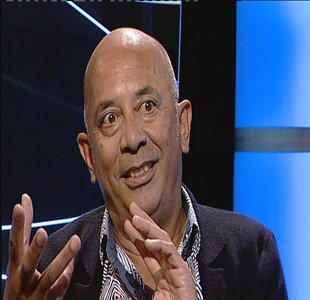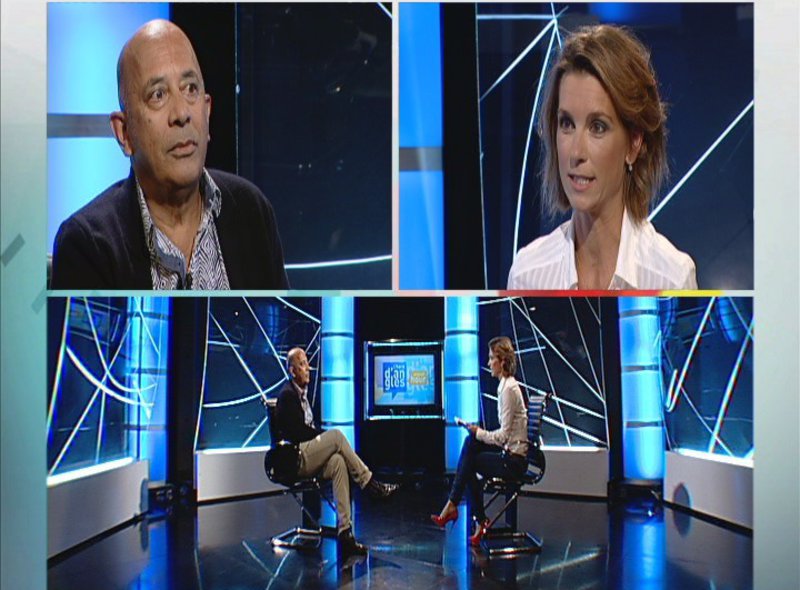Interview
Finding the best narrative

Where are you originally from?
Originally from Holland, where I lived for almost 50 years.
How did Catalonia become your home?
I wanted to emigrate from Holland, like a lot of Dutchmen! And I decided after my studies in physics and philosophy that I wanted to live in Greece, Italy, Spain or Catalonia. Finally I ended up here. I nearly set up a school in Italy, but finally I said this is better.
Why is Catalonia better?
Several reasons. It has the best nature. Where I live, Alt Empordà, is a great secret. It has an open culture full of tradition, but they are open to immigrants here. There is a rich history in philosophy and arts, which is of interest to me.
You studied physics and philosophy at Utrecht University. How do physics and philosophy go together?
Physics is about the basic elements, and philosophy is the essence of all the mental stuff in us and surrounding us. They are linked. So if you do them both you know the inner and the outer worlds. I wanted to know everything. That was my goal.
On your website (humbertoschwab.net) you say: “It is important to beat ignorance, the cause of most of the world's problems.” What do you mean by that?
People don't know what sort of sea of assumptions they live in. That is how we are educated. They don't know, for instance, that they are educated with the assumption that children don't want to learn. We need to leave ignorance behind and start anew, starting from scratch.
You use the word narrative a lot, which is a buzzword at the moment. You say: “Narratives are the key for any performance.”
We are narrative creatures. We will all die and people, when they are 60, 70 years old and some when they are 50, think: “This is my life, was it a good life or do I have to change my story? What am I doing, why?” Schools have terrible narratives. You all sit in rows facing someone's back. No one is relevant; you are not important. The only relevant person is the teacher. The knowledge isn't relevant, as you only need to digest what the teacher is producing. These are all narratives that are producing terrible stuff for kids. The kids have to escape from this narrative and get a new narrative and say, “I want to learn, I want to study, I want to do art, etc.” The best you can do is to ask yourself what your narrative is, whether you want this one. And if not, then change it. Make good narratives.
You also talk about mindsets. Do you mean mindsets as defined by Carol Dweck, 40 years ago? Fixed and growth mindsets?
No, it is deeper than that. We have a neuro-system that we think is our brain but our neurological system functions throughout our whole body. And if you have a thought, for instance, it will release endorphins. So, think that we have the same thoughts over and over again. Endorphins are addictive. This is terrible and even very intelligent people have very intelligent addictive thoughts. So that is the first drama, the second drama is that we cannot listen! This has been tested in business meetings. So we cannot listen, we cannot think and we do not know in which assumptions we live. So this is quite an interesting starting point; we have to train ourselves to think and listen differently. I help people to do this and it goes really quite fast. And people tell me how nice it is to have real thinking, instead of having the same thoughts.
Lets talk about your business. You say that it is unique in Europe and you have developed Socratic Design?
I developed Socratic Design myself over the past 12 years. Before, I was a professor of physics and philosophy in high schools, universities and art schools. Most teachers stand in front of the class and give them the food that they have to re-digest and spit out. I teach the teacher not to teach! This is hard, as most teachers are addicted to teaching. I teach them to stand there and do nothing and let the kids do the work. It is hard. The best teachers are the ones who don't teach but are the ones who bring knowledge creation to the kids.
You say Catalans find this all too advanced and that you are not happy with the educational system here. You haven't come across any positive experiences?
The Catalans have the capacity to go further and faster in innovation but they have too much fear, they stick too much to the addictive old stuff. I think they can do a lot. The people I have worked with especially in art and business are very strong, so I would focus on these sectors. They have strong communities and very strong traditions here. They are far further ahead than they think. They have the secret to good living here.
Leave a comment
Sign in.
Sign in if you are already a verified reader.
I want to become verified reader.
To leave comments on the website you must be a verified reader.
Note: To leave comments on the website you must be a verified reader and accept the conditions of use.




